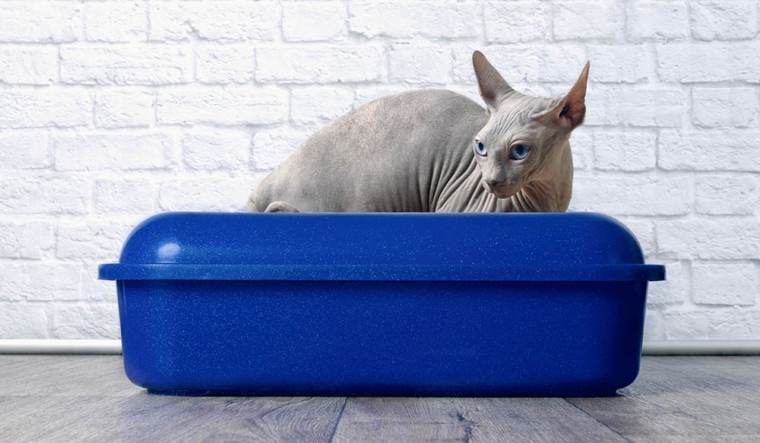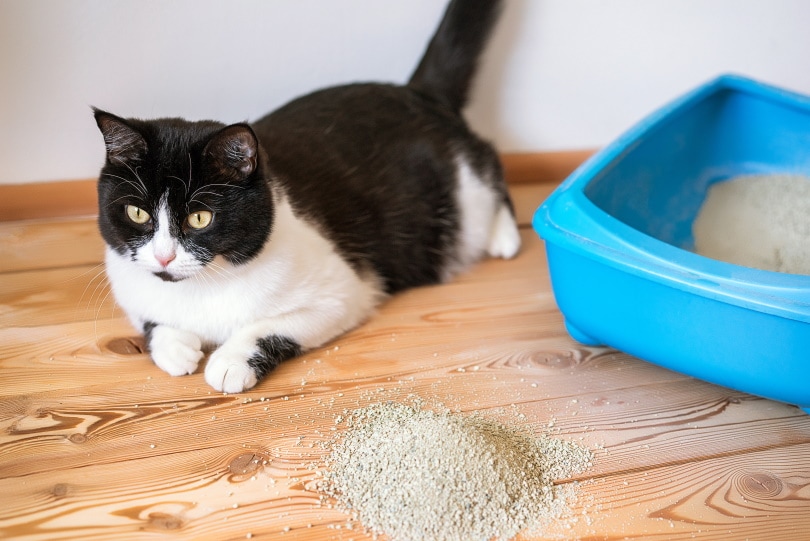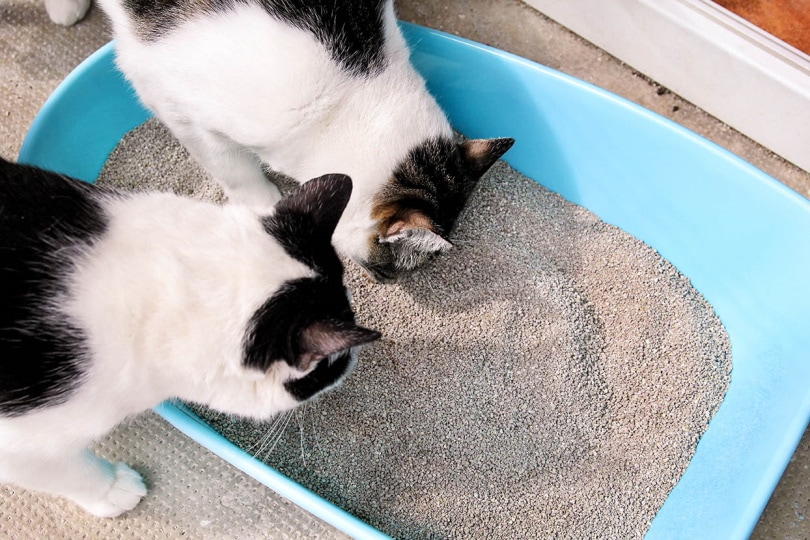
Even if your cat goes out regularly and does the majority of his business while outdoors, you should have a cat litter box in the house so that your feline friend has somewhere to go even during the night or when they can’t get to the cat flap.
The litter box is one of the most important pieces of cat equipment, for you and your cat. Felines are fastidiously clean animals, usually take well to litter training and house training, and a dirty litter box can be as stressful to your cat as it is to the person that has to clean it up. General advice dictates that cat families should have one litter box per cat, plus one extra.
Experts advise that litter boxes should be one and a half times the size of your cat and the same width as the length of your cat. The length of the cat is measured from the tip of the nose to the base of the tail, and while a box can be considered too small, there isn’t such a thing as a too-large cat litter box. At least not from the perspective of the cat.
Do I Even Need a Litter Box?
At its most basic, a litter box is a plastic rectangular box with raised sides. It is used to contain a substrate or litter material, for example, clay or wood chips, and is used by your cat to urinate and defecate. The cat will usually bury its business once complete, which means kicking litter to cover up solids and liquids.
This action mimics how the cat would bury its business in the wild, therefore preventing it from being tracked by predators, but it is also this movement that tends to lead to bits of litter being scattered across the floor. A litter box allows your cat to perform these actions while providing it somewhere private, safe, and convenient to do its business. It means that your cat shouldn’t have any accidents around the house, which can happen if they feel threatened when toileting outdoors.
How Often Do Cats Use The Litter?

Cats go to the toilet up to five times a day, starting from around seven weeks of age. This includes urinating and defecating and is a rough guide. Some cats may go more or less often, while factors such as hydration levels, any treats they’ve been given, and even their general health may mean that they use the litter on a different schedule.
When Do Cats Learn to Use a Litter Box?
Most kittens will start to use a litter box at seven weeks of age, but you shouldn’t worry too much if it takes your kitten one or two weeks longer. They will watch their mothers and learn how to use the box, but if this isn’t possible, for example, because you have adopted a kitten that was abandoned by its mother, start training at around this age.
Show your new kitten to their box, and put them in the litter box after meals and when they first wake up. Praise and reward your kitten when it uses the litter box and don’t punish or tell them off if they get it wrong. It may take longer for a kitten to learn from its human parent than from its natural mother, and it will take longer for older cats to learn, but if you continue to praise and reward the use of the box and you are consistent in your schedule, it will usually come.

The 4 Types of Litter Boxes
All cats are unique, and most have their own preference when it comes to toileting.
Even if you keep a clean and tidy litterbox, you probably still find yourself with cat odors and stains around the house – but with the Hepper Advanced Bio-Enzyme Pet Stain & Odor Eliminator Spray, you can permanently remove even the very worst pet stains and smells! Click here to learn more and get yourself a bottle.
- ADVANCED ENZYMATIC CLEANER - Penetrates the most stubborn smells and stains at the deepest molecular...
- FOR ANY MESS, ON ANY SURFACE - This pet odor eliminator cleans your carpets, floors, furniture,...
- FRESH, NATURAL ODOR - Our unique formulation doesn't rely on dangerous or unpleasant chemical...
At Pet Keen, we’ve admired Hepper for many years, and decided to take a controlling ownership interest so that we could benefit from the outstanding products of this cool cat company!
Litter Box Size
Having an appropriate-sized litter box not only ensures that your cat is comfortable doing its business, and has the space to move but can minimize the debris that is spread across the room.
Measure your cat from the tip of its nose to the base of the tail. This should be the minimum width of the litter box they are given and the box should be at least one and a half times as long as this figure. You can buy a bigger box.
You may also be interested in:
- Why Is My Cat Kicking Litter Out of the Box? 7 Main Reasons (With Pictures)
- How to Train an Outdoor Cat to Use a Litter Box: 7 Simple Tips
Featured Image Credit: Lightspruch, Shutterstock







